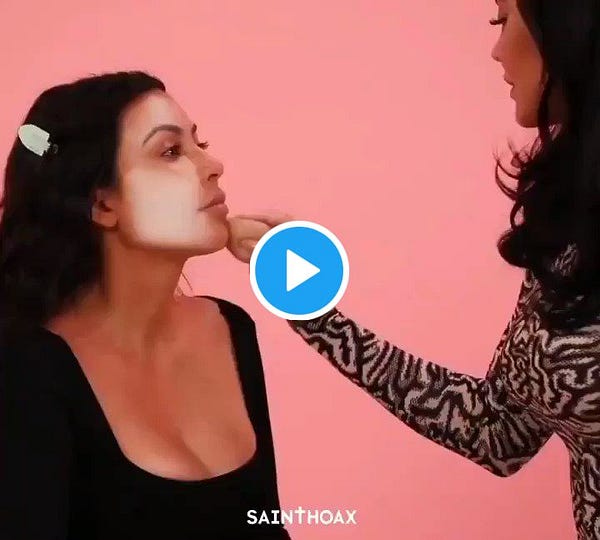✍️Language✍️is✍️changing✍️
🥰 emoji's, cApiTAlizatIOn and memes as an expression of language and identity
Gen Z distinguishes itself from other generations in many ways but language is a key differentiator. Language shapes our identity, allows us to perceive authenticity, and keeps us connected to social and cultural trends. Gen Z's language surpasses verbal communication. Enter in a variety of emojis, capitalization techniques, memes, and Internet slang.
We spoke with Matt Klein, the Director of Cultural Strategy at sparks & honey for this piece who gave us a fascinating perspective:
"A photo is a vibe. A video is a mood. The cliché is that a photo is worth a thousand words, and for Gen Z who holds such complex, nuanced sentiment, these nonverbal but colorful mediums [emoji's, capitalization, etc] are required to get across what's felt."
In fact, computer-mediated communication is now an entire area of study in human-computer interaction and psychology.
Emojis
One of the greatest innovations during the early days of modern technology was the emoji. Gen Z has grown up with these emojis, and therefore they have been given more meanings than what their intent was. A smiley face is not just a smiley face (in fact, I've never met anyone who unironically uses 🙂). 😀 is often purely satirical. It is expresses something like "everything is fine" when in reality, nothing is fine.
TikTok comments are a very unique place to study the use of emojis. Emojis operate differently here than on other social platforms. A popular thing we see is the 🤪Emoji🎢Rollercoaster☄️ in which people overuse emojis between every few words in order to express voice inflection, convey a mood, mock the original audio, or just make something look funny and absurd.
The use of emojis can also give away one's age, personality, or voice. For example, the 😂 emoji is actually not a common way to show laughter. Gen Z tends to use 💀 (I'm dead) or 😭 (omg crying) to express that they found something humorous. Using the traditional laughing emoji 😂 could expose you as someone who is older. Some ojis mean different things when they are used by certain people. Just as a person has a verbal way of speech, each Gen Zer has their own digital voice and we often recognize each other's unique voices, too. For example, my friend Sarah tends to use the "🤪" emoji whenever she messes up. This emoji is unique to her (none of my other friends use it) and my own text adapts to her voice when I text back.
Capitalization
Sarah and I, along with much of Gen Z, also use lowercase capitalization by default. Perhaps it's a subtle way to show defiance. We grew up being taught strict grammar rules and ditching those could make us feel more relaxed and cool. Many Gen Zers also joke about how it symbolizes their spite for capitalism as an economic system. Lowercase capitalization makes us feel less serious and uptight. Even "LOL" has changed to "lol". In a world where we are required to use capitalization at school or in business emails, returning to lowercase is like returning to a safe place— a place with other people who share the same identity as us and understand us.
Additionally, keyboard smashes (AKJSDHFLK) are used to express a strong reaction to something. These could be upper case or lower case and are quite literally just our fingers expressing intense emotion onto the keyboard. What's interesting about keyboard smashes is that some look better than others. For example, "qiweuriwe" looks quite ugly compared to "jdkhflkda." In fact, we even retype keyboard smashes if they don't look aesthetically pleasing to us.
Gen Z also uses uNeVen CapiTaliSM to show mockery or to express tone of voice. This entered the mainstream way back in 2017, when this SpongeBob meme entered the Internet as a trend. People would caption it with uneven letters in order to mock the topic at hand. Because Gen Z is all for creative uses of the keyboard, the capitalization behavior has stayed to this day.
Memes
Unlike natural language, Internet language evolves rapidly, with new words and memes coming in every few weeks. For Gen Z, these "memes" are not the images with bold text captions that started appearing around 2010. Those images seem cringey and lame now, and they are so outdated that there is a Twitter account that posts ancient memes "from a forgotten era of the Internet."
For us, memes are simply images that resonate with our mood. There are tons of Twitter accounts dedicated to being "reaction meme" archives. These accounts serve as a source to come look for the meme that best reflects what we want to express. Oftentimes, cultural trends will bring new memes into popularity, but there are also memes that can be used whenever.
If you are trying to appeal to Gen Z, it's important that you know the difference between a trendy meme and a reaction pic. Trendy memes are time-sensitive. They come into the mainstream for a few weeks, but using them after that time span is ineffective and pointless (or even cringey if you're a brand or an older person). For example, currently there is a picture of the little girl from Monsters Inc. that is circulating Twitter. She is crying in a car, and people are using it to describe nerve-racking driving moments that make us freak out. However, this meme will probably die out in a few weeks, and using it afterwards will not be as effective or exciting as it is right now. Reaction pics are usable whenever. These are often categorized by emotions (love, sadness, etc) or characters (Kermit the Frog, SpongeBob, etc). We send these pictures to each other with or without a caption, and they represent a very specific, nuanced emotion that only young people might be able to understand.
“Slang”
When most people think of Gen Z language, they probably think of Internet slang. But as you can tell, there are numerous other factors that play into the way we communicate other than slang. Internet lingo also evolves, though not as rapidly as memes. You can easily Google "Internet slang" and many results will pop up with headlines such as "30 TRENDY SLANG WORDS YOU NEED TO KNOW" or " LIST OF NEW INTERNET LINGO." The problem with these pages is that they are often outdated and also just made by boomers. Internet slang is time-sensitive and unique to our generation. Additionally, it is very important to note that a lot of this "slang" is actually just AAVE (African American Vernacular English) and thus it should not be used carelessly by non-black people let alone brands. Last November, Beats By Dre released a commercial featuring rapper Flo Milli dancing in front of a confederate statue and flashed the words "Flex that clapback" at the end. The poor use of AAVE and a clearly superficial attempt to appeal to the Black community caused backlash against the brand. The good news is, there are many other ways to appeal to our generation other than using these "trendy" words.




This all goes to show how important the expression of identity is to Gen Z.
"When we think of how Gen Z uses these tools, we can't ignore the "effort" which is still required. While it appears second nature, mental bandwidth is needed to determine which GIF best represents ones' precise reaction. But the key is that said GIF offers control and customization. The same goes for lowercasing. It takes added effort to disable the automatic capitalization, but offers another invaluable layer of expressiveness that a generic capital letter doesn't offer." - Matt Klein
What does this mean for you?
Gen Z language evolves rapidly. A strong understanding and well-employed syntax will land you new impressions, strong engagement, and develop loyalty. Poorly timed or misunderstood language, on the other hand, can instantaneously erase any Gen Z loyalty (not saying we like to do this, but it happens and our job is to help you avoid it).
So how do you make sure you're understanding the way we use language as it evolves?
A big thank you to Matt Klein, cultural theorist and writer at Zine.kleinkleinklein.com for the contributions to this piece!
This email was written by our Head of Research, Tulsi Patel, a current student studying Cognitive Science at Yale University. She’s the best (Andrew added this part in lol).




















How do GenZers organize all these reaction pics? lol